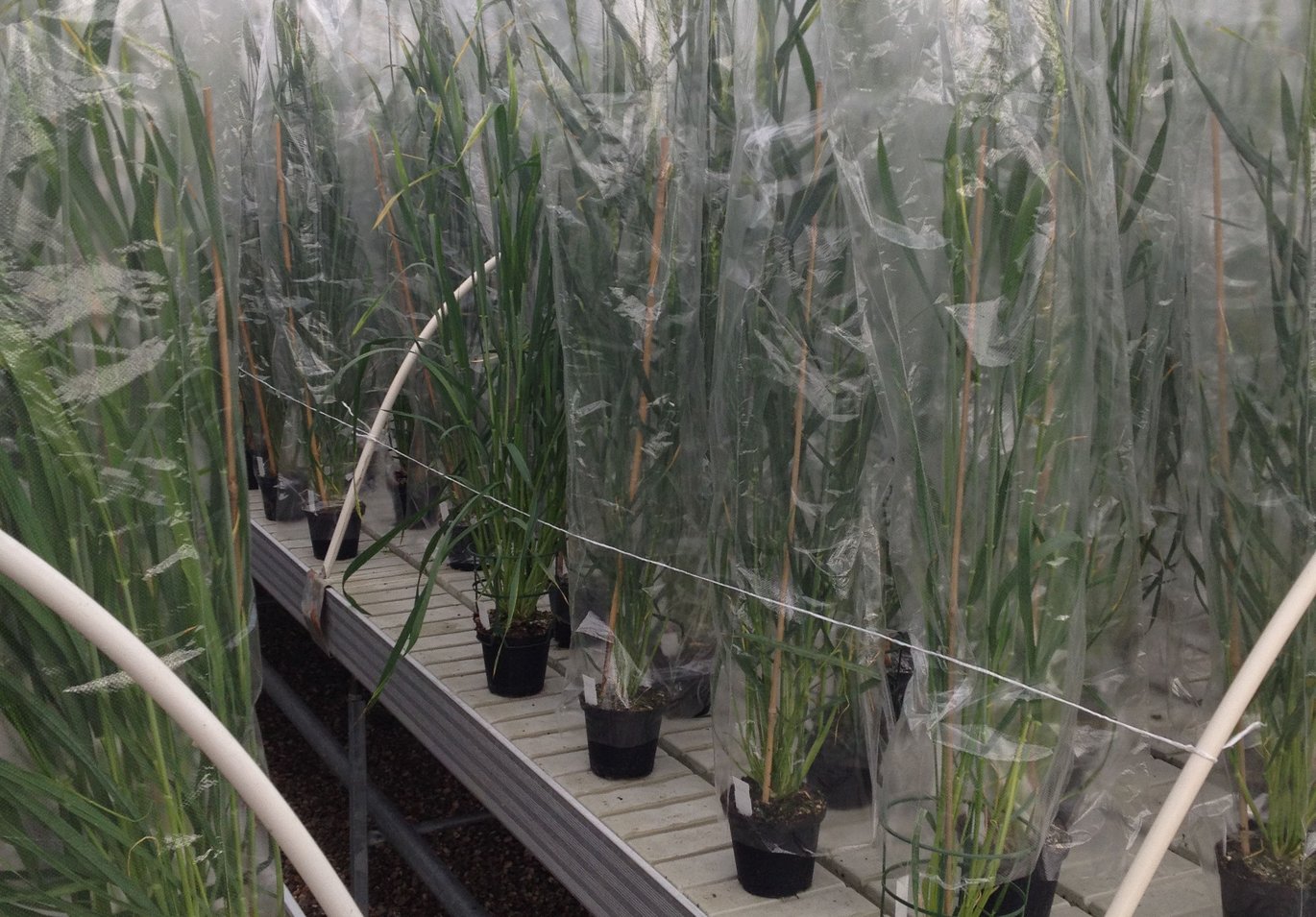Large grant for climate protection of the wheat of the future
With a grant of more than DKK 11 million from the Independent Research Fund Denmark, a new research project will help to climate-proof the wheat crops of the future to increase their resistance to heat, drought and the increased CO2 concentration. The project focus on how the physiological responses differ to different stresses. The Department of Food Science at Aarhus University is participating in the project.

Climate change is putting many agricultural crops under pressure. They are not adpted for the changing conditions. This important issue is the focus of a new research project that will help ensure that the wheat of the future can cope with both heat and drought.
This project, called SUSWHEAT, has just received a grant of more than DKK 11 million from the Independent Research Fund Denmark. The project combines unique research competencies and infrastructures from four strong research environments in China, Wales and Denmark, including the Department of Food Science at Aarhus University. The project is led by the University of Copenhagen.
- We currently have knowledge of how crops respond to the individual effects different types of stress that climate change causes, including heat and drought. We also know that different varieties of wheat react very differently. However, we lack knowledge about the effect when different types of stress occur at the same time. We will look into this in the project. Without this knowledge, we cannot refine climate-robust varieties and thus ensure sustainable agricultural production in the future, says Professor Carl-Otto Ottosen from Plant,Food and Climate at the Department of Food Science.
Dilemma in the stomata of the leaves
More precisely, the project will focus on the stomata of the leaves, where a crucial dilemma exists:
- The challenge is that several types of stress can both amplify and weaken the impact of stress. Drought and heat stress each give the opposite response in the stomata. Drought tolerance requires low evaporation to hold on to the liquid, while heat tolerance requires high evaporation to cool down the leaves. So what happens in the stomata when both take place at the same time - and what happens when they are exposed to an increased level of CO2 in the air? We will investigate this. Overall, the project will provide us with measurable biochemical and physiological indicators for both robustness, quality and yield stability in wheat, says Carl-Otto Ottosen.
A larger collection of wheat varieties, including varieties from Nordic breeders, is the subject of the study, but the knowledge created in the SUSWHEAT project will not only provide a greater understanding of wheat. It can also be used in other contexts:
- As our focus is an understanding of the basic physiological and metabolic mechanisms of the plant, the results can also be used to climate-proof other varieties. For example, it can be used for legumes that will become even more important in the future as a protein source for a growing population, Carl-Otto Ottosen concludes.
| About the project | |
|---|---|
| Collaboration partners | Aarhus University, University of Copenhagen, Chinese Academy of Sciences, China, Aberystwyth University, UK. The project is led by University of Copenhagen, which focuses on photosynthesis and stomata, while Aarhus University analyzes the combination of several dynamic stresses on photosynthesis (so-called deep phenotyping). The Chinese Academy of Sciences focuses on source-sink reactions and quality, while Aberystwyth University looks at metabolite composition. The affiliated PhD students, postdocs and exams will flow freely between the partners in order to take advantage of the individual experiments. |
| Funding | The SUSWHEAT project is funded by the Independent Research Fund Denmark with DKK 11,160,176 as part of the efforts to support green transition. Read more about the Danish Independent Research Foundation on their website. |
| Conflicts of interese | None |
| Contact | Carl-Otto Ottosen, Department of Food Science - Plant, Food and Climate, e-mail: coo@food.au.dk, phone: +45 2290 3105 |
